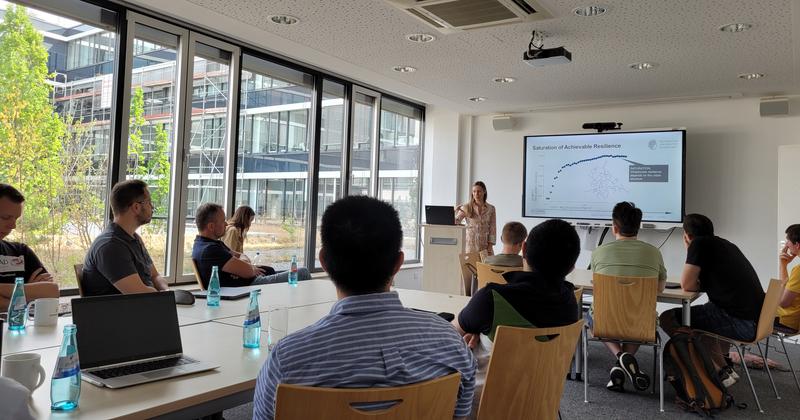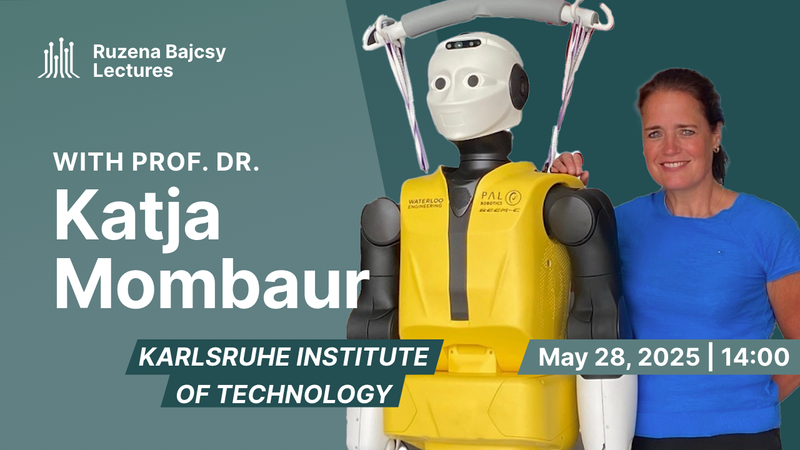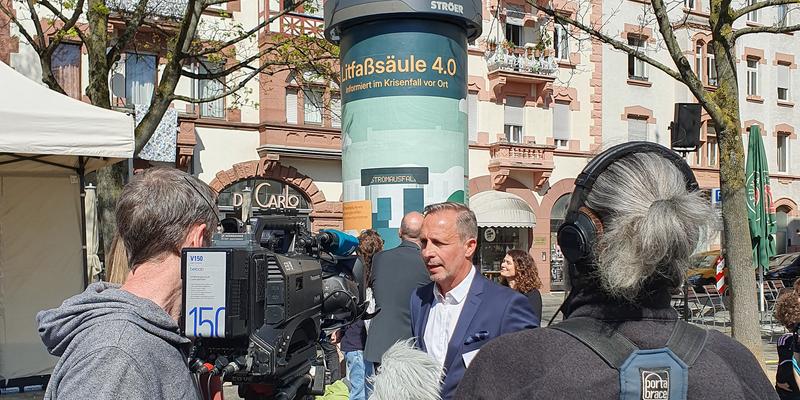The first “Startup Day” recently took place at emergenCITY. The exchange event brought together young scientists from the research center and innovative startups from Hesse to present their projects to each other and establish contacts.
With “speed pitches”, the startups and also the scientists gave exciting insights into their work. The event then moved on to a “speed dating” session, during which the participants were able to discuss their future plans and opportunities for collaboration in smaller groups.
The startups were companies that, just like emergenCITY, deal with problems related to crisis prevention and crisis management and have developed innovative products for this purpose:
DÏoT presented its self-learning system for detecting cyber attacks in the context of the IoT. PanocularAI, a spin-off of TU Darmstadt,again enables autonomous systems to better observe and sense the environment. Inventied has made it its mission to support both disaster and civil protection in all areas. Rescuevation develops innovative response equipment for firefighters, such as the firefighting hedgehog. eRay, on the other hand, is involved in satellite-based water monitoring and the measurement of water levels and water quality. SuperVision Earth showcased its site intelligence solutions that can be used to operate real-time monitoring of areas. And kumeco explained its developments for more resilient communication networks.
The event, held at the emergenCITY Lab, provided a great opportunity to get to know each other and exchange ideas. With events like this, emergenCITY aims to foster synergies between academia and industry and enable a culture of innovation that drives societal progress in the area of crisis resilience.
In the second phase of the LOEWE Center, there will therefore be an even stronger focus on interaction with startups and entrepreneurship – more events with partners are to follow soon.
Startup Support in Darmstadt
Also visiting on Startup Day was the ESA business incubation center, which presented its support program. This is because the European Space Agency helps start-ups to take flight. ESA, which operates the ESOC satellite control center in Darmstadt, also has an incubator there that is part of a Europe-wide network. In addition to founders who develop software useful for space travel or technologies against space debris, those who work with satellite data, for example, can also apply for the funding program.
This means that the own research project does not have to be over when the PhD is completetd. The TU Darmstadt also supports startups with the Highest or Center for Industrial Productivity start-up and innovation center.



